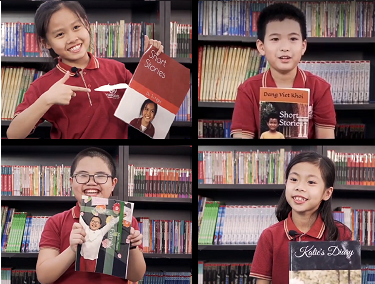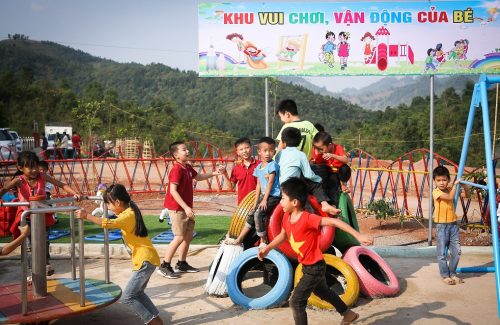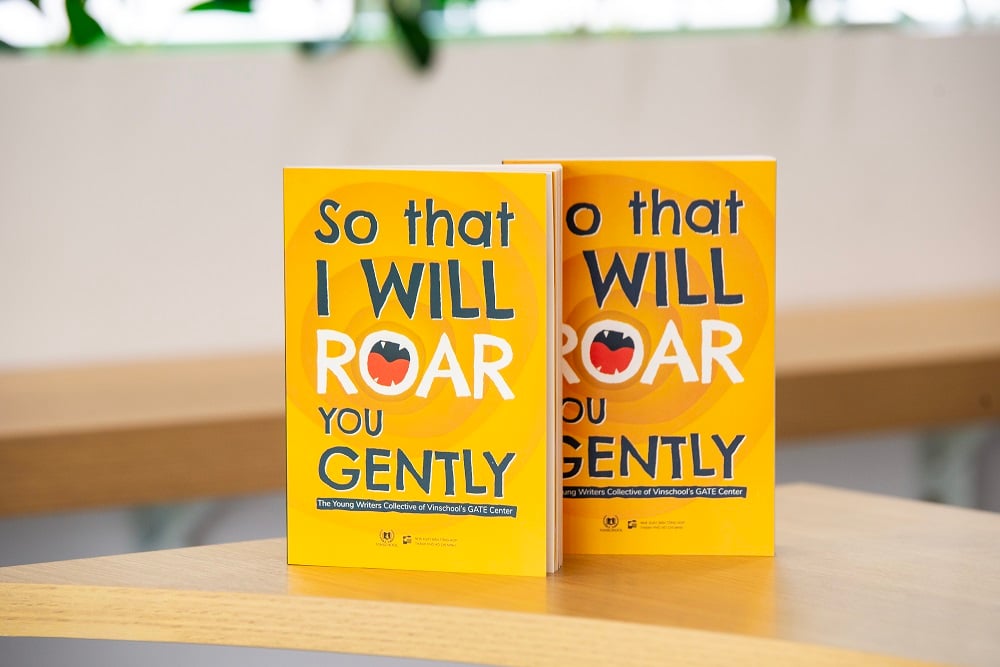GCED helps me learn from, and be encouraged by my students
During the school year 2019-2020, Vinschool began teaching a subject called Global Citizenship Education (GCED) with the aim of training students to become well-rounded, responsible global citizens who can stand shoulder to shoulder with their international friends in the context of globalization. Ms. Nguyen Huyen Trang, a teacher at Vinschool Metropolis Primary School, shared her own experiences of teaching this subject as follows:
“The idea is good, but my group sees that when our local heroes risk their lives to help others on the street, they are also putting their whole families at risk – their families may suffer danger and disadvantage, or even lose the breadwinner. Should they do this? I’m sure you know the answer to that question! I can’t imagine how it would be if I were to lose my father one day!”
Those words, which I heard as my students were debating in my GCED class, stick in my mind, even today. Although the words were simple, they showed how great my students’ debating and listening skills were. They were the heart-felt expression of a 10-year-old child’s mind and heart on a social issue as it related to her father. The words really moved me, and changed my mind about the special tomboy in my class.
This is one of the strong memories I have of my students, especially of their skills and knowledge in such a demanding subject as GCED on the theme “Justice”. This subject is considered to be the most “challenging”. It not only brings us teachers many challenges to get it “right”, to help the children absorb this global language, but also many opportunities to be taught by the children themselves these lessons that can’t be found in books.
The contents of this subject are based on the 17 sustainable development goals of the United Nations, so we, the teachers, need to spend hours studying the subject in order to understand it and to implement it. In particular, the five-standard (systematic, global, critical, innovative, collaborative) approach makes it harder to follow because there are skills that even the teachers themselves must learn. However, thanks to this Learning – Teaching – Learning method that we employ, working with our students become more interesting and effective.
After approaching justice issues in different ways, each student will choose an issue that interests them personally, and study it thoroughly before giving a presentation and debating it with a group of teachers and friends. Each answer, each presentation is unique, created by each student after their study process. More importantly, after seeing my 10-year-old students grow step by step and participate in interviews and surveys, I believe that my students are being armed with essential skills to prepare them well for the 21st century, an era of technology.
Then, in phase 2 of the subject, based on their individual interests, the students form groups based on shared interests in order to make action plans with the hope of making small positive contributions to their community. With the overall theme of “Moral standards in the society”, the students form action groups specializing in helping the disabled have a more equal life, helping Vinschool Metropolis students follow moral standards better, or helping street heroes stay safe, etc.
I’m so excited to join with and support my students, and I love seeing how much they grow. Learning by doing – I believe that doing, experiencing, making mistakes and correcting them are among the most intelligent and productive ways to learn. That is what this subject offers my students. It’s impossible to measure students’ knowledge in numbers, but the lifelong learning skills and the living-together skills which the students of the Z generation are gaining will help them develop much more than we did!








